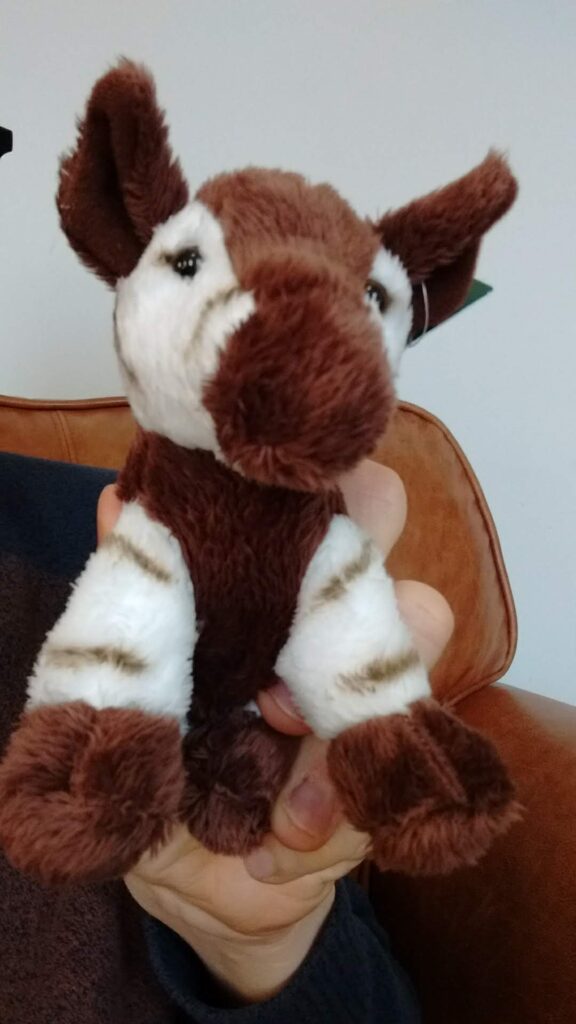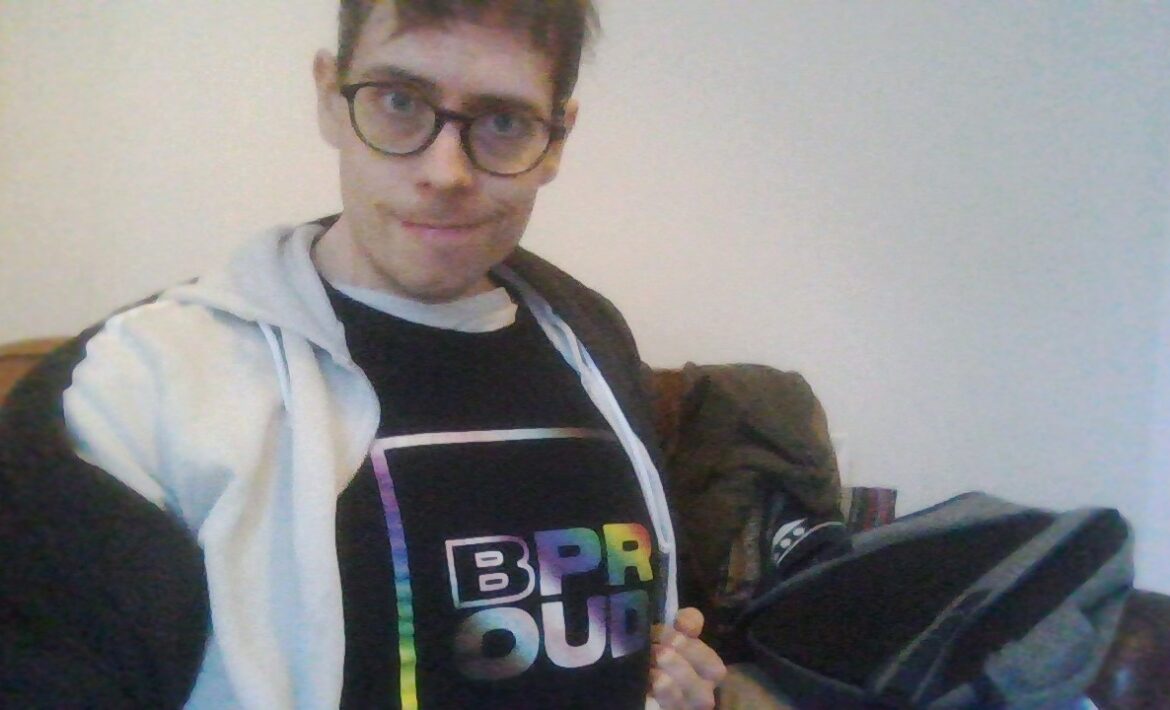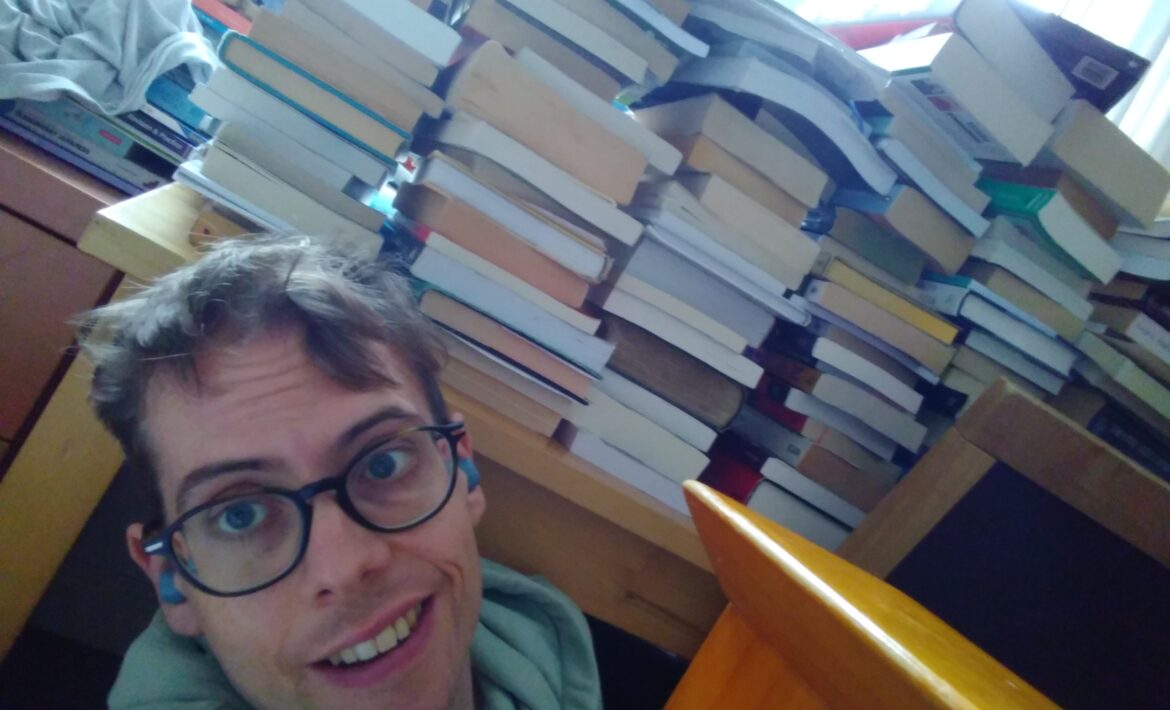
Sunday 27th December 2020: A Look Back + Autistic Escape + Okapi!
Hi everyone!
Sorry about not having the blog out last week – I had a brain freeze and needed to rest.
The day before was my 33rd birthday. It’s been a big year for me, as it has been for everyone. The world looks like a very different place now than it did in 2019, not for any good reason.
There were, however, some genuine victories that need celebrating. I finished my novel, Teeming, and sent it off to agents – I hope to hear back from them in January and February. If I get lucky, I’ll hopefully be able to pivot the blog more in that direction. I started a business as an educator on autism. Things have been slow on that front, but the work I’ve done with Said Business School and Oxford University Press is significant. Chairing events for Autistica and Autscape were also highlights. I hope that when the virus starts coming under control, there will be more opportunities. Since April, I have been writing this blog, which sometimes found an audience, but more often it didn’t. My partner first moved in, then we moved house together. I maintained a healthy weight and managed to withdraw further from unnecessary medication. I managed a full three years in a job. I did great work for the Autistic League and in the school, recently – until I was told to stop. I recently passed an interview for a language teaching role. I learned a lot more about autism, my own and that of others. I remained a personal tutor, which I have been for over eight years now. The future is as uncertain as ever, but I hope next year will have the same highs, fewer lows and be less traumatic for everyone.
Autistic Escape
I also want to touch on a topic I haven’t seen discussed all that often (though, not being on twitter, I could be very wrong on that) the need of autistic people to run away from where they are to somewhere better. We grow up in a world that doesn’t fit our needs and are blamed for being different. We are often abused and taken advantage of, ridiculed and humiliated, even institutionalised. This leads many to want to leave their place of origin. Politics moving to the right over the past twenty years makes that even more likely – autistics know that any movement dedicated to “conserving what’s authentic” within society won’t include them. We know it doesn’t, we’ve been told so many times. Many of my autistic friends are obsessed with other countries, or out of intellectual curiosity or a genuine panic for our safety. We need a place to hide. Our own countries and places of origin do not provide us with that.
Many autistics achieve some form of flight by going to university far away, allowing them to shake off the sense of not-belonging by going to a place where by definition, no-one belongs. University is transitory by nature. It is an inbetween-place. It doesn’t require you to know where the shops or the right bars are. You can go exploring without getting snide looks. At the start of term, we get to join clubs with people who share our interest, without already being required to know everyone. This allows us to start again, hopefully wiser and safer than before. This is not always a guaranteed success: the drop-out rates for autistic students indicate that we are not able to do the combined work of a degree, engaging with a new life (change, though necessary and even wanted, can still be stressful) and get the support we need at the same time. Dropping out of university due to stress or overload can itself escalate and make the autistic person feel even less able to deal with the world. They return as a failure, to a home town that didn’t appear to like them much in the first place.
But it doesn’t have to go that way. In fact, I am someone who made it work. I went to drama school (which was a disaster, read my series on Autistic Coding on Stage), did a year of a degree and then worked for a year. When I started my English degree, I wanted to move to the UK and studying abroad would help me with that. At Sussex, in less than a year, I managed to build myself a life. I thought I’d finally cracked it: I was able to use my strangeness for a purpose (stand-up comedy, at the time) and I was able to find a social network of fellow oddballs. An MA at UCL was my ticket: I was going to make a life for myself here.
I know quite a few autistics who managed to move away, or even emigrate successfully. I know even more who still want to. If you are one of those people, good luck! You deserve every chance at happiness in a country you prefer to your own. I managed it. But it is hard. I had to face all the challenges I would have had I emigrated as a neurotypical. To be sure, social awkwardness is less frowned-upon if people know you’re foreign. Also, already knowing a lot about a culture will stand you in good stead – especially the language. You will get in trouble, socially, for making assumptions based on previous knowledge. I learned about British culture mainly from comedy, documentaries and novels. I still cringe at the time I tried to make jokes about the place where someone lived (Croydon, in this case) which was NOT appreciated in the way the BBC audience did when Sue Perkins made jokes in the same vein. I should have known that was insulting.
The first weeks at Sussex were very lonely. If you emigrate, the first few months will always be incredibly lonely, also for neurotypicals. This is when the honeymoon period ends and you’re stuck without knowing anyone. This is where neurotypicals often decide they have enough and race back home. Ironically, the fewer connections you have in your home country, the easier this will be. The difficult part for us is to move beyond that. I spoke the language fluently when I came to study in the UK, so I managed to make friends easily – or, at least, easily for me. I was part of a friendship group a few months later. Even when I lost those people, everyone having moved on, I was able to find new friends. There will be people. Especially other autistics. Find your tribe, even in those new environments. Whenever we’re all allowed to go out again, go to places where you can find like-minded people. Going to the Oxford Writer’s Circle, on a July Wednesday in 2017 gained me three friends and a life-partner. Friends will fall away, or just lose interest. That’s ok. Don’t assume that people in another country are better or more moral than in your own, eevn if they are more polite.
More pertinently, make sure you have enough money AND a job or place at a university when you go. I found this out the hard way when I couldn’t get a job after finishing my MA. I hadn’t lived in Holland for over 3 years, but still wasn’t able to apply for benefits, since I hadn’t worked long enough to qualify. This was news to me. I thought I would be easily able to get employed, since the UK was far more open about mental health than Holland was. I learned the hard way that words don’t match actions, especially in Britain. In other countries, there might be better benefits systems, or even autism specific in-work support. It is more likely, though, that there will be nothing at all. Be prepared for some big setbacks. The best way to get a foothold in the job market is, irritatingly, by already being independently wealthy. This will allow you to gain connections while preventing burnout. If, for instance, you are able to self-fund a PhD, you will be able to organise your own life around it. Yet this still won’t protect you against in-work discrimination. You will get fewer opportunities than your neurotypical peers. Race, gender, sexuality, gender identity, class and additional disabilities only act as escalating factors.
Depending on where you are, you might face more systemic oppression, simply because you are autistic. There are countries, like Spain, that have terrible records on institutionalising autistics against their will (although I hope to hear from others who have had better experiences). There are other countries where you might be imprisoned or killed for being who you are. Autistic queer people struggle more with masking their sexualities, so in places like the UAE, you’d be at greater risk, even if you’re white. Wherever you go, you might face less, or more, homophobic or racist abuse. I faced less homophobic and ableist abuse in the UK, but in Holland I would have full WaJong out-of-work benefits. Then again, in Holland, I would have lived in supported housing, closed off from the working world. In the UK, I was at least allowed to work. I managed for a full three years. I would not have had that luxury over there.
There are always caveats. At some point, you will lose the love for your new homeland. For me, that happened in 2016. Whatever your uncle might say, EU Referendum was always a referendum on my continued existence in this country, The country voted against and insisted on fling itself into a brick wall repeatedly, just to make the point that I and those like me weren’t welcome. I’d thought, by moving to the UK, that I had escaped the incipient far-right. I was wrong. What I’d seen happening since the year 2001 was happening in 2016 and after. The cynicism of the Johnson government to delay the deal until Christmas Eve was astounding, even after all that has happened and all that they’ve said and done. Even after nearly 70.00 unnecessary deaths from COVID, many of those disabled and vulnerable. People like me.
There won’t be a way to escape bad politics. Cruelty is just too popular at the ballot box. But when my partner and I saw the article about Finland looking for more tech workers by giving them work visas, my partner made up his mind – that’s where we’ll probably go, in a few years. He wants to leave. He’s sick of this place. He’s tired of the venality and cynicism. He wants to make a go of it somewhere else, like I’ve managed to. He’s not naive, not anymore. We’ve had long conversations about what it would be like. He’s lucky that he’ll have someone beside him who’s already been through it all. I am good at admin and I get stuff done. I’m brilliant at languages. I have an EU passport. And I can hold him when it gets too lonely. At least we’ll be doing it. That’s my main point: you can succeed, even alone. You just need a whole lot of luck. Without that, money will do.
If you would like me to expand this quite rambly blog on Autistic Escape for an event, please let me know. To anyone else, I wish you a very happy new year. Let’s hope it is less traumatic than this one, or, for that matter, the first 20 years of this so-far pretty shitty century.
Oh, one last thing.

This is Okapi. Whenever a subject has exceeded discussion time, Okapi comes in and gently moves the conversation onto a different subject, simply by being lovely and ridiculous.
Say it with me: Okapi 2020.
Thank you for sticking with me. You’re all amazing.
Have a good one.
xxx
Jorik


